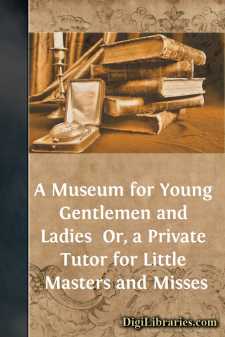History
- Africa 30
- Americas (North Central South West Indies) 50
- Ancient 68
- Asia 58
- Australia & New Zealand 8
- Canada 41
- Caribbean & West Indies 1
- Civilization 20
- Eastern Europe 12
- Europe
- Expeditions & Discoveries 60
- General 77
- Historical Geography 1
- Jewish 9
- Latin America 3
- Medieval 8
- Middle East 13
- Military 248
- Revolutionary 8
- Study & Teaching 5
- United States 353
- Western Europe 56
- World 13
Europe Books
Sort by:
by:
Hugh Gibson
INTRODUCTION This volume is not a carefully prepared treatise on the war. It does not set out to prove anything. It is merely what its title indicates—a private journal jotted down hastily from day to day in odd moments, when more pressing duties would permit. Much material has been eliminated as of little interest. Other material of interest has been left out because it cannot be published at this...
more...
by:
Charles Morton
March 1, 1653. Whitelocke continues the negotiation. Now was the heat of Whitelocke’s business, and many cross endeavours used to render all his labours fruitless, and to bring his treaty to no effect. But it pleased God, in whom his confidence was placed, to carry him through all his difficulties, and to give his blessing and success to this negotiation. Whitelocke gave a visit to the Count de...
more...
A MODERN SYMPOSIUM OME of my readers may have heard of a club known as the Seekers. It is now extinct; but in its day it was famous, and included a number of men prominent in politics or in the professions. We used to meet once a fortnight on the Saturday night, in London during the winter, but in the summer usually at the country house of one or other of the members, where we would spend the...
more...
by:
Unknown
THEINTRODUCTION. I AM very much concerned when I see young gentlemen of fortune and quality so wholly set upon pleasure and diversions, that they neglect all those improvements in wisdom and knowledge which may make them easy to themselves and useful to the world. The greatest part of our British youth lose their figure, and grow out of fashion, by that time they are five and twenty. As soon as the...
more...
by:
Robert Black
CHAPTER XVII. THE CRUSADES, THEIR DECLINE AND END. In the month of August, 1099, the Crusade, to judge by appearances, had attained its object. Jerusalem was in the hands of the Christians, and they had set up in it a king, the most pious and most disinterested of the crusaders. Close to this ancient kingdom were growing up likewise, in the two chief cities of Syria and Mesopotamia, Antioch and Edessa,...
more...
by:
Robert Black
CHAPTER I. GAUL. The Frenchman of to-day inhabits a country, long ago civilized and Christianized, where, despite of much imperfection and much social misery, thirty-eight millions of men live in security and peace, under laws equal for all and efficiently upheld. There is every reason to nourish great hopes of such a country, and to wish for it more and more of freedom, glory, and prosperity; but one...
more...
by:
Robert Black
CHAPTER XXIII.——THE HUNDRED YEARS' WAR—CHARLES VI. AND THE DUKES OF BURGUNDY. Sully, in his Memoirs, characterizes the reign of Charles VI. as "that reign so pregnant of sinister events, the grave of good laws and good morals in France." There is no exaggeration in these words; the sixteenth century with its St. Bartholomew and The League, the eighteenth with its reign of terror, and...
more...
by:
Robert Black
CHAPTER XXXV. HENRY IV., PROTESTANT KING. (1589-1593.) On the 2d of August, 1589, in the morning, upon his arrival in his quarters at Meudon, Henry of Navarre was saluted by the Protestants King of France. They were about five thousand in an army of forty thousand men. When, at ten o'clock, he entered the camp of the Catholics at St. Cloud, three of their principal leaders, Marshal d'Aumont,...
more...
by:
Robert Black
CHAPTER XXVIII. FRANCIS I. AND CHARLES V. The closer the study and the wider the contemplation a Frenchman bestows upon his country's history, the deeper will be his feelings of patriotic pride, dashed with a tinge of sadness. France, in respect of her national unity, is the most ancient amongst the states of Christian Europe. During her long existence she has passed through very different...
more...
by:
Robert Black
CHAPTER XLIX. LOUIS XIV. AND HIS COURT. Louis XIV. reigned everywhere, over his people, over his age, often over Europe; but nowhere did he reign so completely as over his court. Never were the wishes, the defects, and the vices of a man so completely a law to other men as at the court of Louis XIV. during the whole period of his long life. When near to him, in the palace of Versailles, men lived, and...
more...











